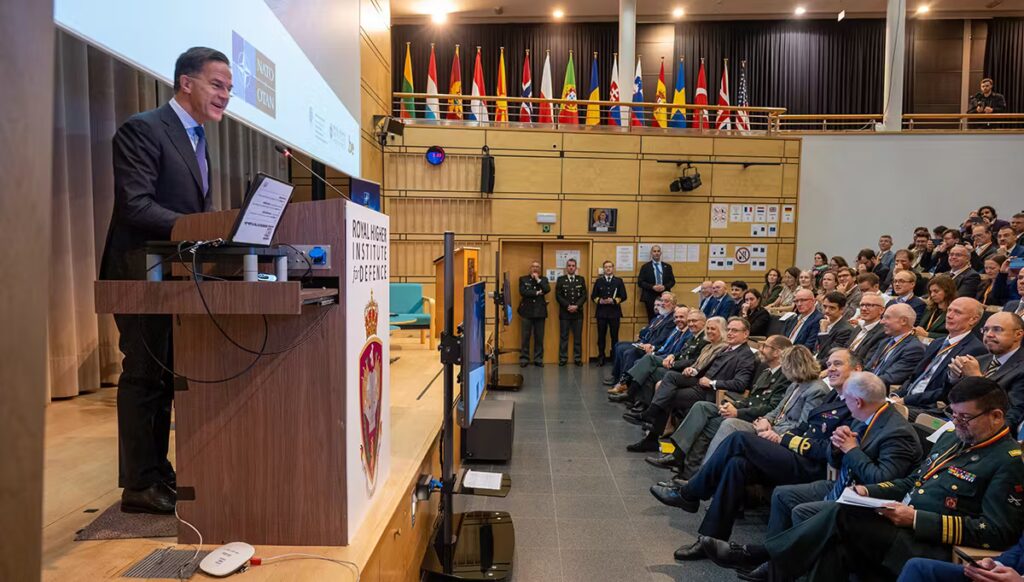NATO Secretary Basic Mark Rutte has urged allied nations to speed up innovation and funding in biotechnology to make sure the alliance stays forward of rivals reminiscent of China and Russia, the organisation acknowledged.
Addressing NATO’s first Biotechnology Convention in Brussels on Tuesday, Rutte described the assembly as “a significant step” towards deeper cooperation between governments, academia and business on defence-related biotechnology.
The convention, hosted by Belgium, introduced collectively greater than 300 individuals from throughout the alliance, together with defence officers, researchers and private-sector representatives.
Rutte mentioned biotechnology is now “excessive on the listing” of applied sciences vital to NATO’s future safety and that “our safety hinges on our capacity to innovate and combine new applied sciences.” He added, “To remain secure, we don’t simply want the tanks and the jets, and the ships, and the drones and the ammunition. We additionally must develop, to accumulate and to combine biotechnology in our defence capabilities.”
Warning of rising competitors, Rutte mentioned that “China has made fast developments in biotechnologies, together with gene modifying and artificial biology for army and dual-use functions,” and that Russia continues to “leverage its experience to conduct covert organic analysis.” He argued that each international locations intention to “seize the benefit” by weaponising analysis and controlling provide chains.
“We can not enable them to grab the benefit,” he advised attendees. “We should keep on the forefront of innovation and due to this fact fast-track the event and adoption of defence-critical applied sciences.”
Rutte pointed to progress made inside the alliance, highlighting the NATO Biotechnology and Human Enhancement Technique, adopted in 2024, and the Defence Innovation Accelerator for the North Atlantic (DIANA), which has funded 28 biotechnology firms up to now yr.
He mentioned biotechnology already has sensible functions for NATO forces, from telemedicine and moveable blood provide techniques to wearable sensors that monitor fatigue or detect trauma. “These applied sciences assist shield our troops and improve resilience,” he mentioned. “They make us stronger they usually make us safer.”
Rutte concluded by calling on NATO members to “ramp up efforts to make sure we stay on the forefront of the biotechnology revolution.”
“Collectively, you deliver one of the best expertise and experience,” he mentioned. “With you, and thru you, we will and can ship the biotechnology we want for the defence and safety of the Alliance.”

